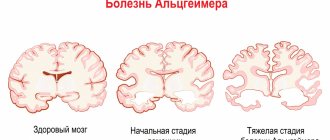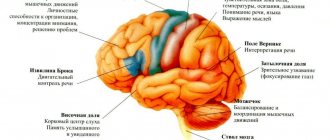New Year's Eve is a very deceptive time. On the one hand, we are all waiting for a miracle, but on the other hand, we understand that some things will remain in the past, and it cannot be corrected or returned. This is where depression can “overwhelm” us, the insidiousness of which lies in the fact that it will do this without warning, leaving us alone with fear and pain.
The head of the GMS Clinic psychogenic disorders clinic, psychiatrist Roman Glebovsky told the online magazine Posta-Magazine about what depression is, how it appears, who is at risk and how to survive this difficult illness.
...Time disappeared, and so did the light. It became dark, empty and scary inside. Desires, needs and meanings - everything disappeared. Just like the colors, the world around me suddenly became equally gray. I wanted to die, nothing more. I still wanted to cry all the time. Just like that, without any reason. My depression lasted for several months, several years have passed since then, and I still remember that period with horror and every time I begin to pray that it will not happen again.
“If previously it was believed that depression was some kind of seasonal changes, now many studies indicate that in large cities with a population of one million people there is no such seasonality. That is, depression can happen to any of us at any moment,” Dr. Glebovsky told me.
I listened and remembered how this happened to me. It was as if I had been turned inside out, deprived of all my desires and values, leaving me without support and protection. The support of friends, the love of loved ones, interesting projects at work - nothing helped. Pain, hopeless melancholy, sadness and a feeling of hopelessness accompanied me everywhere and did not leave me for a minute. I had to seek help from a specialist and start taking antidepressants, otherwise I wouldn’t have made it through - I didn’t have the strength to fight. Antidepressants became best friends for the next couple of years - they helped return the joy hormone serotonin to normal. Which, as it turned out, due to a hormonal imbalance, suddenly stopped being produced in my body.
Types and causes of depression
Depression can be organic, not related to external factors. At some point, the amount of endorphin hormones in the body decreases (serotonin, melatonin, treptophan), and the causes of such depression are most often physiological: age-related and vascular changes or some kind of physical injury.
There are also endogenous depressions, which may be based on stress, a tense family situation, loss, divorce, quarrels, problems at work, or lack of adequate sleep and wakefulness. But it is the correct sleep pattern that provides us with the necessary amount of joy hormones - endorphins, which “protect” from this unpleasant disease.
“If we sleep little and poorly, then the so-called “evil hormones,” destroyers—nurochlamines, nuroadrenalines, adrenalines—increase,” Roman Glebovsky continues the conversation. — Every person has an emotional limit, including a mental limit. There is no onset of depression without signals. There are always some harbingers. They can be different, ranging from a decrease in appetite or changes in taste characteristics, to a decrease in libido in women and potency in men.”
Types of depression
- Neurotic – people with low self-esteem, insecure, and straightforward people often suffer. They constantly experience a sense of injustice, and this is where apathy arises.
- Clinical – bad mood, loss of energy, problems with appetite and sleep. Suicidal tendencies are often observed. This clinical picture can last at least 2 weeks.
- Vegetative – manifested by such symptoms as tachycardia, drop in blood pressure, tinnitus.
- Psychogenic - develops after severe psychological trauma - divorce, loss of a loved one, dismissal from work, betrayal, etc. Accompanied by mood swings, anxiety, and excessive sensitivity.
- Masked - often the disease manifests itself secretly. Apathy, solitude and decreased interest in life can only appear as negativity and fatigue accumulate.
- Asthenic – the condition is manifested by fatigue, sleep disturbance, emotional imbalance due to accumulated difficulties, stress, physical and psychological stress.
- Postpartum – usually occurs 10-14 days after delivery. The young mother shows an increased sense of excitement for the baby, and constant lack of sleep and fatigue further worsens the situation. In addition, the mother's condition is also affected by hormonal levels.
- Somatogenic – attacks occur due to disturbances in the endocrine system, the formation and proliferation of neoplasms, both benign and malignant.
- Alcoholic depression – depression is accompanied by excessive consumption of alcoholic beverages. The post-alcoholic state is accompanied by an uncontrollable craving for alcohol and an increase in withdrawal symptoms when giving up alcohol.
- Bipolar – the patient experiences a change from euphoria to a depressive, manic disorder. But in the period between these phenomena, caused by various factors: stress, loss of means of popularity, etc., a person lives a normal life and does not show symptoms of the disease.
Symptoms of depression
A person is designed in such a way that he rarely pays attention to the signs, to what the harbingers of the disease are trying to “tell” him. It can last a month or a little more, and then the pain just bursts out, and with it what you have been holding back for so long and trying not to notice.
“A depressed person is immediately visible: tired skin, lifeless, empty eyes, decreased performance, conversations about how everything is bad, that he is tired, that he can’t do anything, that nothing is needed, that nothing is interesting. A person loses interest in life, it’s as if a cell is growing around him, beyond which he does not want to go,” says the doctor.
If you do not provide timely help to a person suffering from depression, a funnel of pain can drag him to the very bottom. Psychologists call this state “winter of the soul,” when positive feelings and emotions seem to freeze and you become deaf to the outside world. But this is not the end of life, it's just winter. It’s as if she’s testing the strength of her desire to live.
Literature:
- Clinical and psychological characteristics of alcohol dependence combined with endogenous depression: a manual for doctors / T. G. Rybakova, O. F. Eryshev; Ministry of Health and Social Development of the Russian Federation, St. Petersburg Scientific Research. Psychoneurological Institute named after. V. M. Bekhtereva. – St. Petersburg: Publishing House of St. Petersburg Scientific Research. Psychoneurological Institute named after. V. M. Bekhtereva, 2008. – 26 p.
- Krylov, Evgeniy Nikolaevich./ Depressive disorders in the clinic of alcoholism: abstract of thesis. ... Doctor of Medical Sciences: 14.00.18 / Moscow. scientific research Institute of Psychiatry. – Moscow, 2004. – 35 p.
- Depression and alcoholism, clinical and social relationships: educational and methodological manual / Shcherbak E. A., Kutashov V. A., Sivolap Yu. P.; Ministry of Health of the Russian Federation, Voronezh State Medical University named after N. N. Bauman. – Moscow: RITM, 2021. – 173 p.
How to help a depressed person
But without winter there is no spring, and every test is given to a person so that he becomes stronger and wiser, so that he feels the taste of life and appreciates it. But in moments of depression, it is extremely important that loved ones do not give up, that they react, sympathize, provide help and support.
“I first try to work with depressed and anxious-depressive patients through psychotherapy. I try to find reserves in the person himself, in the family, in changing the circle of friends and redirecting thoughts, to give him something new. Ignite an inner fire in the patient that will help him live and move on. Because neither you, nor me, nor anyone can live without this fire,” shares Roman Vladimirovich.
If a person close to you does not want to see a specialist, but you still see symptoms of depression, try to help him using simple methods. Spend more time in the fresh air, go horseback riding or to the dolphinarium, go on a trip, drink wine, go to the movies. Try to get him to eat more sweets - this promotes the production of endorphins. But if all this does not help, you should definitely contact a psychotherapist.
Symptoms
Most often, a person suffering from chronic depression seems to people to be a dissatisfied character with a bad character who is not happy with everything around him for no apparent reason. You should think about depression if:
- there are risk factors - chronic lack of sleep, fatigue, nervous work, difficult family situation, caring for a sick relative;
- symptoms in the form of tearfulness, constant depression, and a pessimistic outlook on life appeared relatively recently and have not been observed since early childhood;
- problems with physical condition appeared - headaches, decreased performance, sleep and appetite disturbances, pain in the heart, abdominal pain, which cannot be explained by somatic pathology during examination.
Symptoms of chronic depression may occur to greater or lesser extent from time to time. For example, becoming less noticeable after some rest. There is some improvement and deterioration in well-being, replacing each other. If you notice fluctuating occurrences of the following conditions, consider seeing a therapist:
- anhedonia - rarely any positive emotions arise, there are no pleasant sensations from simple things like delicious food, relaxation, sunny weather;
- apathy - lack of desire to do anything besides the most important responsibilities, avoidance of meetings with friends, travel, lack of desire to take care of oneself and the home, study, desire to spend more time at home in solitude;
- negativism – patients indicate that everything annoys them;
- feelings of guilt, helplessness, uselessness, hopelessness, low self-esteem, a feeling of inability to change something, which can lead to a suicide attempt;
- symptoms of mental and motor retardation, difficulty concentrating, difficulty performing difficult intellectual actions, fatigue, forgetfulness, absent-mindedness;
- somatic symptoms - headaches, dizziness, weakness, decreased libido, insomnia, decreased appetite, pain in muscles, joints, heart, abdomen and other organs; osteochondrosis, arterial hypertension of unknown origin;
Remission
The human psyche has an amazing property - it can self-heal as long as the body lives and breathes. With the right approach and treatment for depression, you can quickly learn to live and breathe again. At first hesitantly, then more and more confidently. Then the understanding will come that the “winter of the soul” was needed in order to bring spring and summer back into life, learn to listen to your heart, love simple things, smile at the sun and every new day, enjoy food and communication with your loved ones. Enjoy the little things that you simply didn’t have time for before. Love life in all its manifestations.
Source: posta-magazine.ru
Treatment
Patients with alcoholic depression are hospitalized in the drug treatment department. The drug treatment regimen includes drugs from the following groups:
- Antidepressants. Citaprolam, sertraline, fluoxetine and amitriptyline are the mainstays of treatment. The minimum duration of treatment is several months. The medicine is selected individually.
- Tranquilizers. Zolpidem, lorazepam and analogues are prescribed in a short course at the initial stage of treatment. This helps to quickly alleviate symptoms of depression and reduce the severity of side effects that often appear in the first days or weeks of taking antidepressants.
- Antipsychotics. Necessary for severe cases with the development of delirium and hallucinations, phenomena of alcoholic delirium.
The antidepressant is prescribed in a small dose, then the dosage is gradually increased until a therapeutic effect is achieved. If there is no significant improvement within 3–4 weeks, the medication is replaced. In severe cases, a combination of several drugs is used. Taking medications must be supplemented with psychotherapy - this improves treatment results.
At the same time, alcoholism . Detoxification is performed using infusion therapy, drinking plenty of fluids and forced diuresis. To improve the condition of the nervous system, nootropics and B vitamins are used. Symptomatic drugs are prescribed to alleviate the symptoms of withdrawal syndrome. Provide therapy for identified chronic diseases.
Content:
- Who suffers
- Why does it occur
- Signs
- Consequences
- How to go out on your own
With prolonged drinking, depression becomes a natural result of mental and physical exhaustion against the background of prolonged use of large doses of alcohol. According to statistics, almost half of alcoholics have experienced this disorder at least once. As a rule, the symptoms are mild or moderate, but a severe course is not excluded.
What determines the duration of depression in alcoholism?
One of the most pressing questions is how long does depression last after heavy drinking? First of all, it depends on the severity of depression from a hangover. In acute alcohol withdrawal syndrome, severe somatic, autonomic and neurological disorders are observed. In this state, depression is often combined with increased irritability, anxiety and hysteria. Anxiety usually lasts 2-3 days, but depression after heavy drinking, accompanied by melancholy and self-blame, is more stable and lasts for 1-2 weeks.
Who suffers
The frequency of occurrence, duration and severity of the disease directly depend on the length of use - the longer it is, the longer and more severe the depression will be. Accordingly, most cases occur in middle and older age (over 40 years). Women suffer more often, but in men the pathology occurs with more pronounced symptoms, often accompanied by suicidal thoughts and attempts. One of the reasons for the worsening psychological state of representatives of the stronger sex is the reluctance to see doctors and the desire to cope with the disease on their own.










